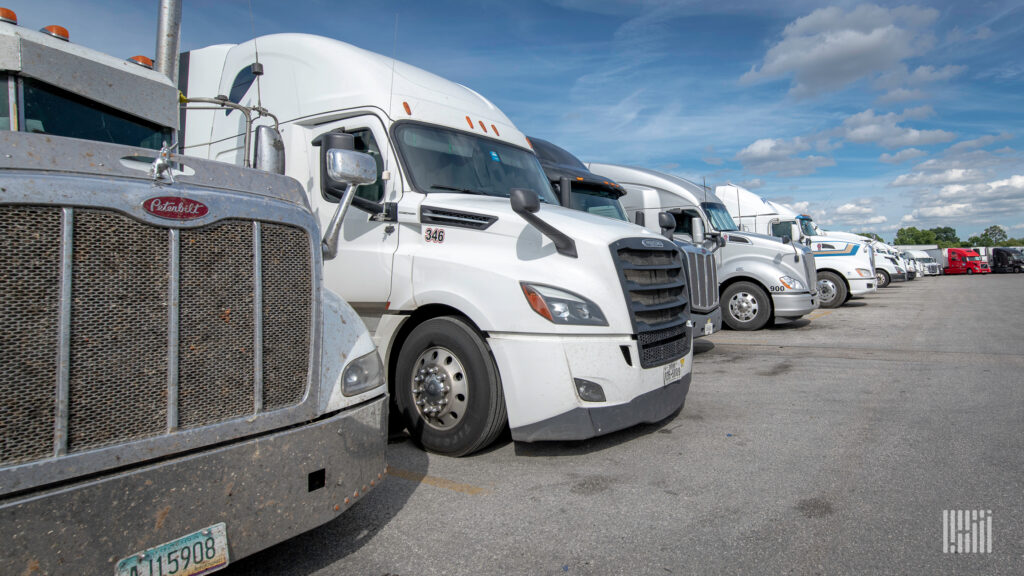Truckload Carriers Association (TCA) Chairman Jim Ward describes our nation’s roads and bridges as a truck driver’s office, and good parking as their home away from home. But with only one truck parking space for every 11 drivers, the trucking industry desperately needs more parking.
Truck drivers consistently rank parking availability as a top concern in annual surveys. When drivers cannot readily find parking, they are forced to park illegally or continue searching, often violating federal hours-of-service (HOS) rules. In fact, 70% of drivers admit to violating HOS rules to find parking and 96% have had to park in areas not designed for trucks.
Drivers who are forced to park illegally put themselves and others at risk. As a last resort, drivers reluctantly park in unsafe, illegal areas like highway shoulders, interstate entry and exit ramps, and abandoned properties. Naturally, 84% of drivers feel unsafe when parked in illegitimate areas.
Illegal and high-risk parking intensifies safety concerns for women in the industry. Some female drivers have reported they will only park in the front of truck stops to avoid walking long distances to the back of the lot alone – shrinking the already-tight selection of options. The industry, now more than ever, needs to attract, retain, and protect female drivers, as they could help to solve the U.S. driver shortage. Women account for only 7.8% of the U.S. truck driving pool; if the industry could increase that by just 2.3%, it would end the 80,000 driver shortage.
To avoid unsafe or illegal alternatives, drivers often park prior to completing their available drive time – forfeiting an average of 56 minutes of available drive time per day and $5,500 in direct lost compensation annually. The loss of productivity further disrupts crippled supply chains and the loss in pay discourages driver retention. With 85% of drivers citing parking as the No. 1 cause of stress at work, alleviating the truck parking shortage will help retain drivers and prevent the driver shortage from getting worse.
The U.S. Department of Transportation found that the truck parking shortage exists in every state and region, making it a national problem worthy of Congressional attention and money. Unfortunately, the new infrastructure spending package did not include dedicated funding for truck parking. However, it did increase spending in accounts where truck parking is an eligible expenditure. This means that it will be the responsibility of state and local governments to prioritize and pursue funding for applicable grants.
With freight projected to grow, the truck parking shortage will worsen if action is not taken. If parking capacity is improved, drivers will be safer and more productive, with better pay and higher retention. Industry leaders understand that resolving the truck parking problem is crucial to taking better care of drivers and best growing the industry. Knowing this, industry advocates like TCA will continue to call on Washington to join forces to combat this problem.




